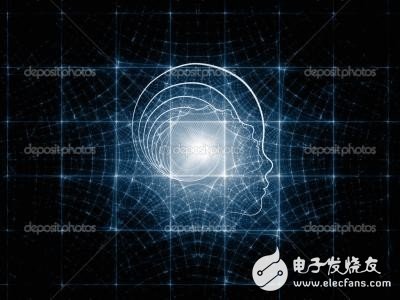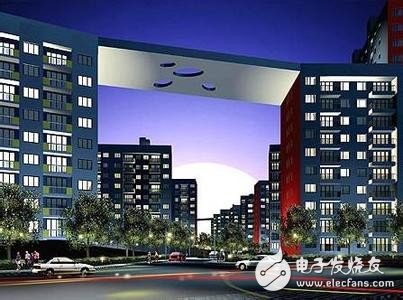Electronic enthusiasts eight o'clock in the morning: the emergence of cloud computing, big data, the Internet of Things has indeed subverted people's lives.
Since the rise of several popular technologies mentioned above, smart homes have frequently appeared in major media and people's sights. It has eroded the market with a more intelligent lifestyle, and is comfortable, safe and convenient. Intelligence is also the relentless pursuit of people's quality.
However, in the process of development, it has experienced a smooth sailing and experienced ups and downs. Some people say that its potential is unlimited, but some people say that it is famous. In 2017, how will smart homes develop? And look at the author to analyze.
This article will predict industry trends from seven technical perspectives: artificial intelligence, Internet of Things, biometrics, cloud computing, environmental control, digital intercom, and smart security.
artificial intelligenceOn Monday, Tesla CEO Musk said that human beings must be combined with machines, otherwise they will be eliminated by artificial intelligence. No one knows how much artificial intelligence energy is here. Looking around, nowadays all walks of life are actively embracing artificial intelligence, from chess to security, service, transportation, etc., this concept can always seize any opportunity to enter the people's eyes.

Coincidentally, after Baidu Luqi took office, the first fire to burn was artificial intelligence. Baidu recently announced the acquisition of the artificial intelligence enterprise Raven Technology, dedicated to creating a new generation of human-computer interaction and personal interaction system--ProjectFlow . Baidu's acquisition of Raven Technology is a positive step around the exploration of artificial intelligence business. After all, artificial intelligence business has been widely used in the industry. Unmanned driving is still far away. So many manufacturers have begun to target smart hardware and let artificial intelligence Embed in each smart device.
If this is not enough to explain the trend of the industry development, then Dyson has announced that it will invest 412 million US dollars in a new research institution in Singapore, so that the development of artificial intelligence can prove its authority. It is reported that Dyson has been involved in the field of artificial intelligence before. Last year, Dyson introduced PureCoolLink, a product with networking function. Users can know the current air status and equipment running status of the room and replace the remote control. Take action. But Dyson doesn't think this is true artificial intelligence. Dyson said: "What I expect is that you don't need to control the device through the mobile app, but make everything automatic, and the appliance can automatically adjust the settings according to your preferences. To tell the truth, Dyson’s idea is indeed very exciting, and it is also in line with the ultimate form of artificial intelligence in the home life.
Internet of ThingsThe rapid development of the Internet of Things has greatly accelerated the popularity of smart homes, which is beyond doubt.
Nowadays, in China, the development of the Internet of Things has risen to the national strategy. The government has proposed many constructive programs to promote the rapid and good development of the industry. As an emerging industry with "small ages", smart homes are catching up with this. Hey, windmill. As a blue ocean project, smart home has unlimited prospects, and all of this depends on the development of the Internet of Things. From wired connection to wireless transmission, from concept to reality, the Internet of Things subtly makes several of the family seem irrelevant. Things are all closely linked together. Nowadays, the connection of objects has become the lowest configuration. On this basis, all the smart home manufacturers are also self-contained, actively researching and developing various products, and the industry is on the verge of development.
BiometricsSmart home systems with biometrics are now subverting people's lifestyles.
In addition to infrared security and remote monitoring, smart password locks are being accepted by more and more families, becoming the choice of ordinary residences. The smart password lock not only changes the lifestyle of people using the key to open the door, but also the password lock of the fingerprint identification system, so that the elderly and children who do not operate the mobile APP can easily unlock. And as the technology matures, the price of smart password locks will also be lowered. The convenience and security of fingerprint locks will also bring a very optimistic market prospect, and a new round of door lock competition will also promote the rapid development of the fingerprint lock market.
cloud computing
At present, smart home manufacturers adopting cloud computing technology in China have Haier, IOT sensing, Haier is more to consider from the entire smart community, and IoT sensing is the first domestic and international cloud service to be introduced into smart home. Among the enterprises. Through cloud computing, users can not only view the wind and grass in the house in real time, but also trace the source. For example, if someone in the family invades, even if the suspect escapes, he can call up the video recording of the accurate time according to the response time of each sensor, and provide the police with the basis for solving the case. In the same way, through the data analysis of all kinds of smart sockets and intelligent switches in the home, it is possible to realize energy management and control of the home, and to formulate energy-saving, environmentally-friendly, convenient and comfortable home appliance lighting use plans. "In addition to providing users with large-capacity data storage space, cloud services also take on more and more critical functions!
Environmental controlMany smart home items make people's lives more comfortable and convenient.
Environmental problems such as decoration pollution and smog have become increasingly serious, and people's demands for indoor environment have gradually increased. Consumers are more willing to try smart home products with convenient performance and comfort. The demand for smart air purifiers and sweeping robots will increase, and the importance of fresh air systems will also increase significantly. Busy work and life lead to the owner not being able to constantly monitor the indoor environment. If the environmental control is raised to an intelligent height, the smart home system can automatically sense and monitor the indoor temperature, humidity, air quality, etc., and adjust accordingly. Will be more popular with consumers.
Digital intercomIn the foreseeable future, building intercom will increase the functionality of smart homes, integrating security, home appliance control, information services, and entertainment, resulting in a qualitative change in the building intercom system. Closely integrated. Unlike pure analog systems, digital/analog hybrid systems use lower cost analog devices in the cell, while backbone networks use Ethernet-based digital TCP/IP protocols for networking. The digital/analog hybrid system is currently one of the most economical and effective ways to solve large community networking.

In recent years, especially in the United States, smart security has a tendency to replace and subvert traditional security. In the past, cameras have only been monitored in our minds, but there are many intelligent security products on the market, such as the Mijia released last year. In addition to the traditional camera, night vision, and monitoring functions, the small white smart camera adds an additional voice interaction function. The products are integrated, more powerful and powerful. One product brings multiple needs and multiple solutions. The experience of a product to address multiple needs is completely different. Dudu E's Dudu smart box is also the same, including infrared security, air detection, smoke alarm three-in-one, can control the whole family of home appliances, but also to achieve environmental monitoring, real-time indoor temperature and humidity, PM2.5, VOC ( Detection of harmful gases and noise intensity, and infrared detection of indoor human activities, immediately alarmed when outsiders enter, gas leaks, fires, etc. It can be seen that with the development of technology and the popularity of smart homes, the general trend of home security and intelligent hardware integration has gradually taken shape.
to sum up
Nowadays, the market scale of China's smart home industry will show a rapid growth trend in the next few years. In 2021, it will break through 290 billion yuan. The huge "cake" of smart home has become the focus of attention of all parties. As a smart home enterprise, it should be highly integrated with the industrial chain, coordinated development, and win-win cooperation. Therefore, through the above-mentioned seven development trends of smart homes compiled by the author, I hope that relevant people can get some development inspiration from them.
Disclaimer: The electronic reprinted works of E-Commerce Network are as far as possible to indicate the source, and all rights of the owner of the work are not transferred due to the reprint of this site. If the author does not agree to reprint, please inform the site to delete or correct it. Reprinted works may be subject to change in title or content.
include DM-211(1+1 pockets)
DM-610(6+1 pockets)
DM-910(9+1 pockets)
coin deposit module,Coin Deposit,Cash deposit module
Suzhou Ribao Technology Co. Ltd. , https://www.ribaoeurope.com
